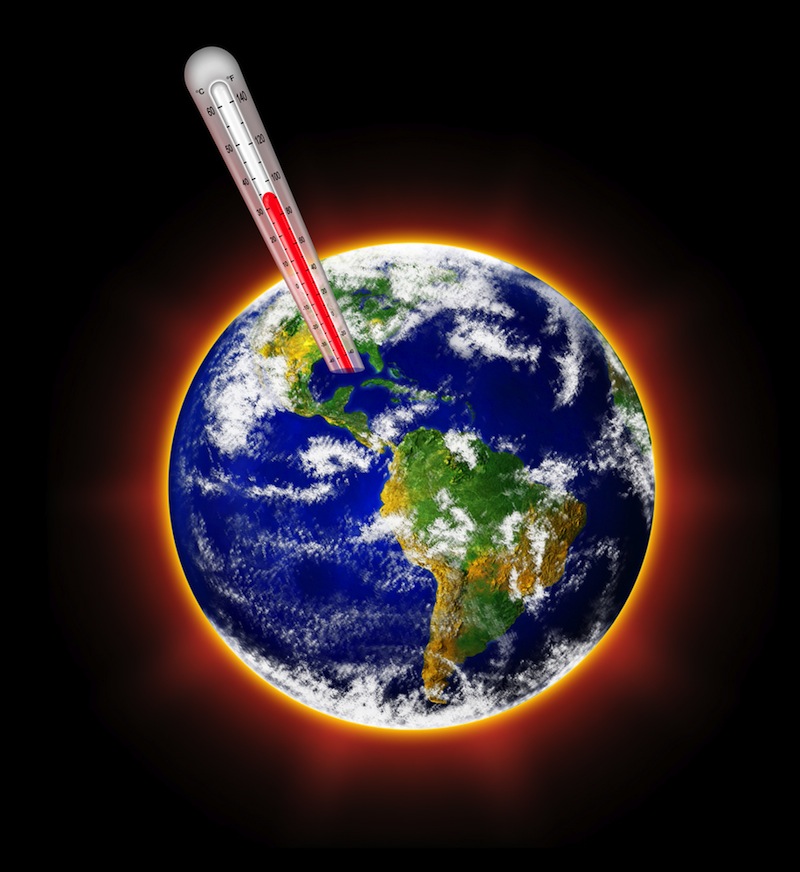
5 Resources Nations Need to Survive a Warming World (Op-Ed)

Raghu Murtugudde is a professor at the University of Maryland's Earth System Science Interdisciplinary Center (ESSIC) and the Department of Atmospheric and Oceanic Science. Murtugudde contributed this article to Live Science's Expert Voices: Op-Ed & Insights.
Despite the oft-repeated claims of global cooperation and responsibility on climate change, there is some evidence global warming will create winners and losers. And for those nations that are less affected, particularly developed nations, altruism may not be enough to motivate a global climate response. Some nations may simply be unwilling to share the scientific and technological breakthroughs that might aid the nations struggling with a changing climate, even though some of the "winners" accelerated global warming with their energy-intensive lifestyles.
Critical technology for a critical time
The Institute for Globally Transformative Technologies (IGTT) at the Lawrence Berkeley National Lab recently released a report citing the 50 most critical scientific and technological breakthroughs required for tangible sustained development. As global entities such as the United Nations and development banks engage in climate mitigation and sustainable investment, the IGTT report may provide a critical roadmap of what research and technologies are needed, and the unique challenges they face in being implemented.
In prioritizing its list of required breakthroughs, the IGTT report identifies specific problems, the key challenges they present, and the promising interventions available. The report focuses on the nuts-and-bolts required for true sustainable development, including policy reforms, behavioral change and necessary financial, infrastructure, and educational developments.
Water
Although the report breaks some new ground, some findings are already well established and solutions could be developed immediately. For example, water quality, quantity and access are at risk across the world, but low-cost, scalable desalinization methods would be a monumental breakthrough for many volatile parts of the world. [Erin Brockovich: Carcinogens Still Plague California's Drinking Water (Op-Ed)]
Sign up for the Live Science daily newsletter now
Get the world’s most fascinating discoveries delivered straight to your inbox.
Medicine
Similarly, effective vaccines; testing kits; medical instruments; and inexpensive, large-scale air and water quality monitoring already exist, so increasing deployment is common sense. Human health is being directly affected by global warming, not only due to disease and increased heat and cold waves, but also due to increased air pollution caused by fossil fuel emissions, and these trends are projected to only get worse. Some health problems demand less obvious innovations, such as off-the-grid refrigerators to store vaccines, medical samples, and nutritious food for infants. [Americans' Mental Health is Latest Victim of Changing Climate (Op-Ed)]
Agriculture
The study suggests several immediate agricultural needs, such as fertilizers that do not require much energy to process; low-cost, smart systems for irrigation; herbicides and repellents for weed and pest control; and drought-resistant seeds. But a new focus on agro-innovation is also required, such as for refrigeration that does not require a power grid, cost-effective alternatives for preserving animal semen to sustain animal breeding operations in the warm tropics that are severely deficient in sustained energy supplies, high-nutrient/low-cost animal fodder, and portable toolkits for extension workers who serve regions not reached regularly by veterinarians and for the veterinarians themselves.
Renewables
Much has been written about the need for renewables in order to reduce humanity's global carbon footprint. Similarly, the energy-water nexus, i.e., the constant competition for water needed in energy production vs. water demand for agriculture and domestic use, cannot be ignored for the poor, within the context of sustainable development. The IGTT report recommends a "utility-in-a-box" approach for deploying cost-effective renewable energy mini-grids. And, people will need affordable housing that is resilient to extreme weather, fitted with renewable energy sources and environmentally friendly plumbing. Yet it's equally important that these essentials can be transported to rural areas, can be easily constructed and operated, and include cheap energy-storage devices.

Information
Sustainable development and policy implementations cannot be successful without behavioral changes and development of human capital. The latter depend critically on education and communication and the IGTT study underscores the need for education and communication. Such needs could be met through the Internet of Things: digital devices coupled together to create an integrated system whose sum impact is far greater than that of its components. Such a connected system would ensure interoperability among devices, provide continual feedback to users and application layers that link the components of a system with common protocols, and allow users to share data for developing transferable solutions and rapid transfer of experiential knowledge from one community to another. Users equipped with affordable smart technologies could also access digital learning tools, books and online courses, with the devices simultaneously serving as environmental sensors for temperature, humidity and wind-speed data.
With existing public-private partnerships, various market mechanisms, and climate finance tools already in-place, the building blocks for these desperately-needed breakthroughs may already be available. However, the main challenge of sustainable development may not reside in technology breakthroughs, but rather breakthroughs in cooperation as seen by the lack of agreements within the United Nations Framework Convention on Climate Change on transfer of green technologies from developed to developing countries. As nations accept that are are all forever and irreversibly connected, symbiotically, that realization may prove to be the only true and lasting catalyst that drives true sustainable development.
Follow all of the Expert Voices issues and debates — and become part of the discussion — on Facebook, Twitter and Google+. The views expressed are those of the author and do not necessarily reflect the views of the publisher. This version of the article was originally published on Live Science.









